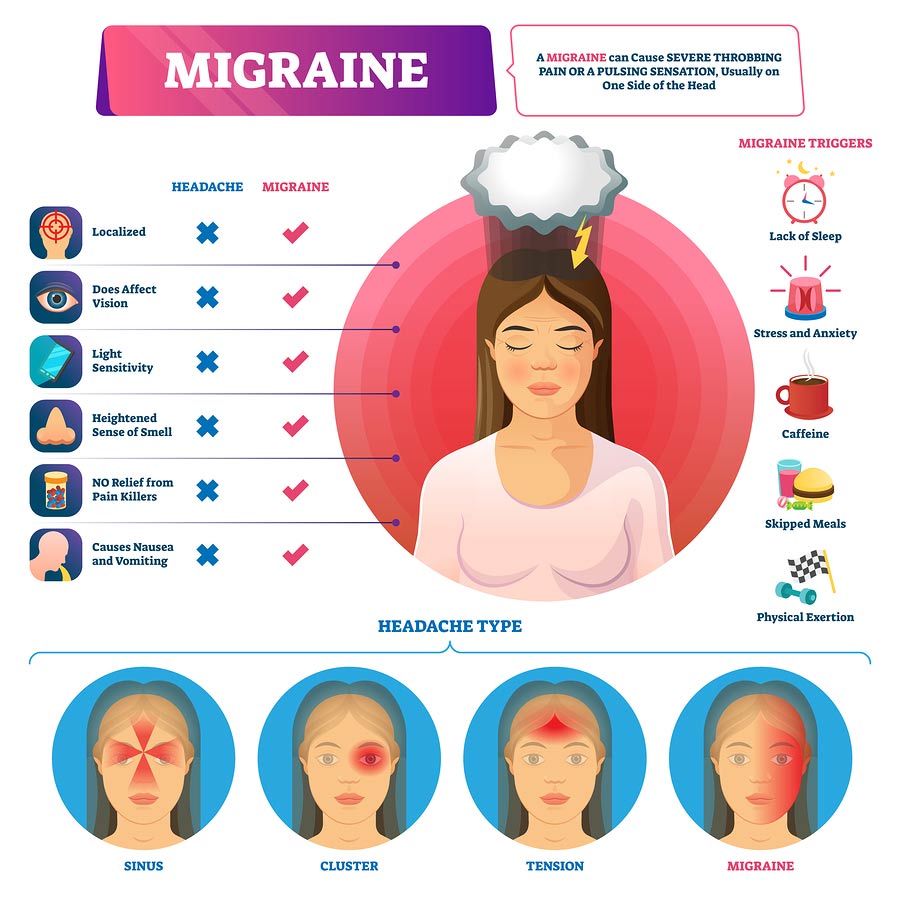
A migraine is a severe headache that causes throbbing pain or a pulsing sensation. It often comes on only one side of the head, and it may or may not be accompanied by other symptoms such as high sensitivity to light and sound, vomiting, and nausea. Migraines can last for anything between a few hours to days, and the pain can be severe enough to interfere with normal activities.
What Is The Difference Between a Migraine and a Headache?
Headaches will usually come occasionally and can be linked to an incident or reason. For example, being very stressed, being outside for a long time when it is very hot, or being in a very noisy place can trigger a headache.
Also, a simple headache is quickly eased by getting out of these disturbing conditions, lying down or taking a mild painkiller. Migraines tend to recur without a specific trigger and they usually need stronger medicine than a simple painkiller. There is medication formulated specifically for migraines.
Another difference is that migraines may come with what is known as aura before a headache starts. This may be a tingling sensation on one side of the face, in the leg or the arm. It may also be blind spots or flashes of light.

Medication For Migraines
Medication works to prevent migraine attacks and to ease the pain. A doctor can prescribe;
- Medication for relieving pain which is also known as an abortive or acute treatment. This medication is taken when you have a migraine and it works by stopping the symptoms. One type of medication is triptans which contract blood vessels thus blocking pain pathways in the brain. Some examples are Sumatriptan, Zolmitriptan, and Imigran to name just a few.
- Preventative medication which is medication that is taken regularly to reduce the severity or frequency of migraines. They are often taken daily.
The medication given depends on whether a patient has other medical conditions, how severe the attacks are and if they cause disability.
Did you find this article helpful? Join us at HealingWell for support and information about Migraine Headache. Connect and share with others like you.




